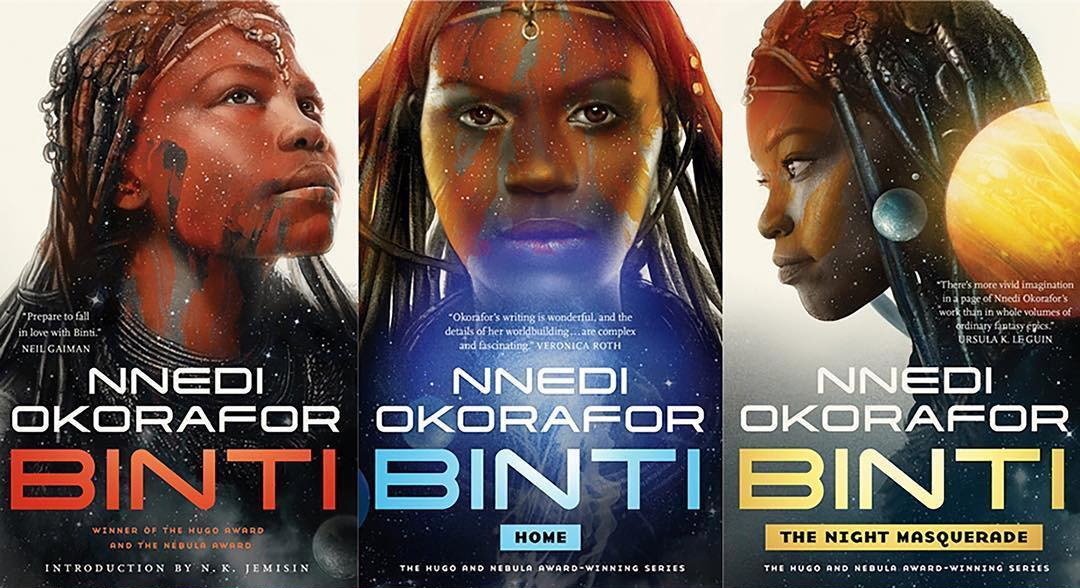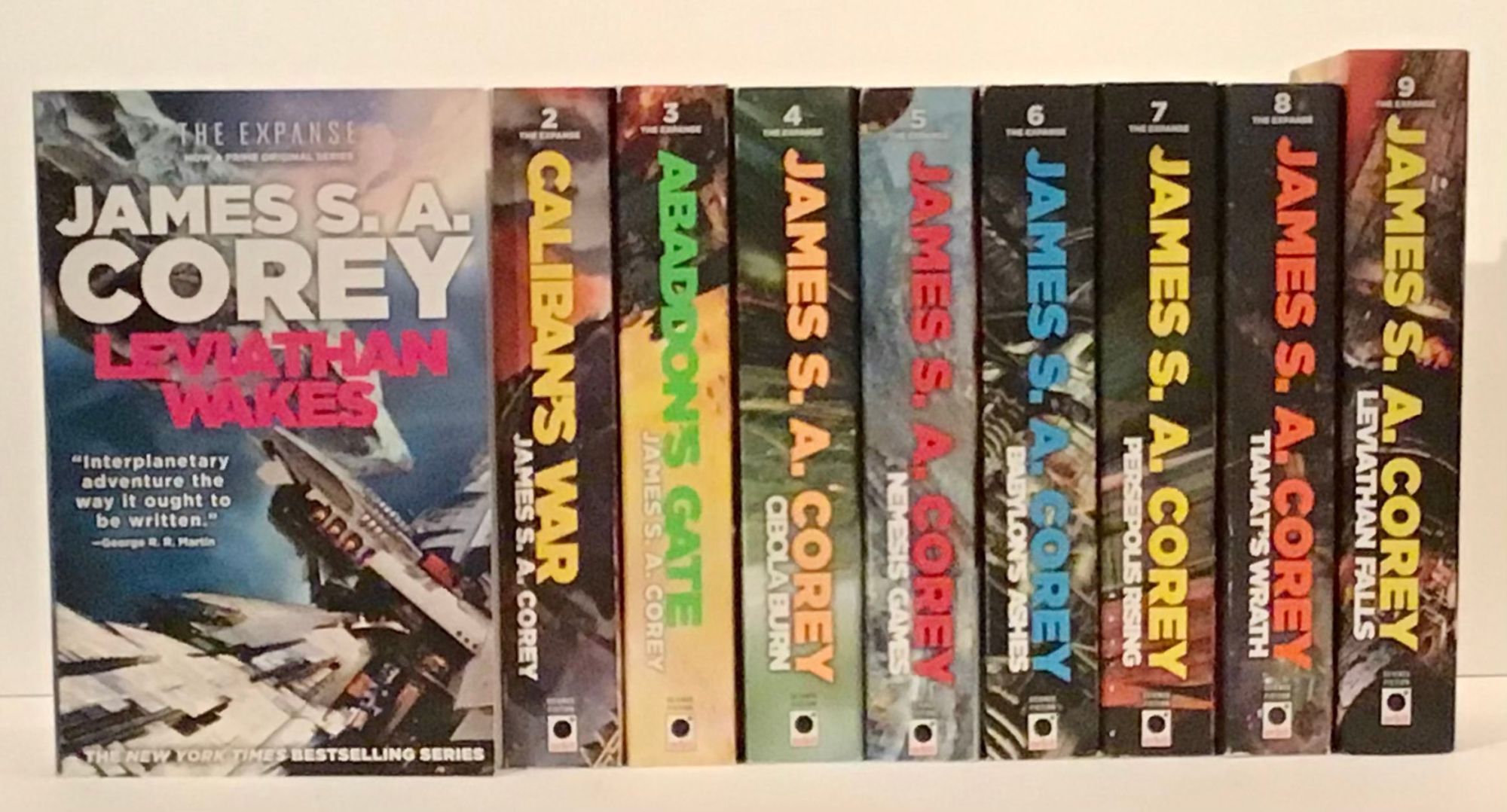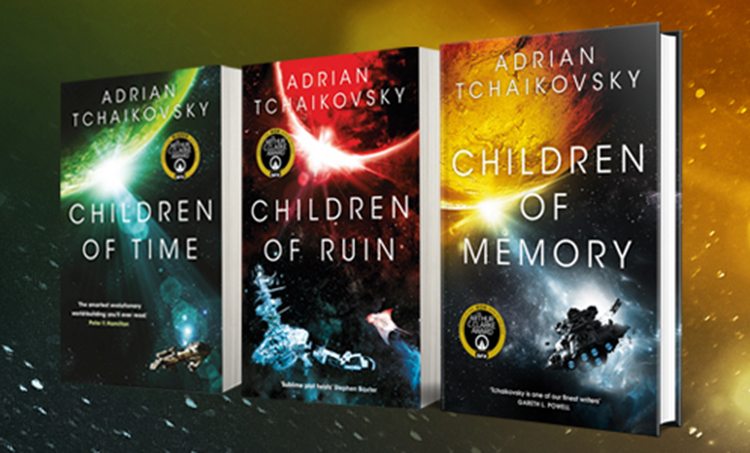[Updated May 2024]
Full disclosure: Science fiction is one of my favorite genres! It was extremely difficult to limit my picks to just six books or series. However, I recognize that if I gave all of my favorites here, the amount of text would stretch from here to the moon and back.
Science fiction is one of those genres that really makes its readers think of the futures that they would want to live in. (For example, I wouldn't mind living in the semi-utopian future depicted in Star Trek.) It is a big umbrella, covering everything from speculative fiction to space opera (think, Star Wars). Some blur the lines enough between science fiction and fantasy, but I prefer to have some separation between the two, with the former being one about realistic possible realities and the latter primarily uses realities that do not follow the laws of reality as we know it.
Not to diss fantasy, which is another one of my favorite genres. Imagination is equally compelling in both science fiction and fantasy, and sometimes, you want reality, and sometimes you want the escapism of fantasy. Each has its merits.
Here are my picks for science fiction!
The Expanse series (9 novels, 1 volume of short-stories) by James S.A. Corey
The Expanse series is a long one, yes, but it rewards those that stick around. A standard space opera, it takes place in Earth's future, where humanity has been able to colonize most of the solar system (Earth, Mars, and the outer planets). Those that live off-planet become known as "Belters" (after an asteroid belt that stretches between Mars and Jupiter). Space wants to kill you, and your ship is your home, so Belters' whole culture is one of extreme discipline and ingenuity when it comes to ship repairs and general survival. This makes for a cultural divide that threatens to erupt into political conflict and even war, as Belters view those who are planet-bound as spoiled oppressors.
When a team of ice-miners, led by XO James Holden, discovers a defunct ship with explosive secrets, their findings erupt into war between Earth and Mars. Militant Belters (the Outer Planets Alliance) begin background machinations, with the end goal being the weakening of Earth and Mars. Holden and his crew find themselves at the center of major events from then on, from the discovery of a long-dead civilization's technology and an artificial wormhole. What happens when humanity discovers countless new worlds to explore? (Hint: Existing conflicts merely have more room to grow.)
Action-packed, with plenty corporate and political intrigue, and a cast of well-developed characters, I believe The Expanse series is worth the try. (If you enjoy the books, they have been developed into a TV show of the same name.)
The Binti series (3 volumes) by Nnedi Okorafor

The Binti trilogy by Nnedi Okorafor is quite the ride and shows off Okorafor's imaginative and lyrical writing. Her books, like these, expose readers to a side of science fiction known as "Afrofuturism," imagining various African cultures and their diaspora and what their futures could be like. I was hooked by the series almost immediately and have gone on to read many other novels by the author.
Our protagonist is a girl going off-world to study at a prestigious university (Oomza University), where humans are just one species among many in the galaxy hoping to get a great education. However, she finds herself in the middle of a conflagration between Oomza University and the Meduse, a vaguely octopus-like alien species. Readers follow Binti and her education off-world to her journey home, getting treated to a unique future in which exo-politics threatens the existence of Earth, Oomza University, and beyond.
A captivating trilogy, worth the read!
Fahrenheit 451 by Ray Bradbury
Fahrenheit 451 is a classic dystopian sci-fi that takes place closer to home, in a future where books are forbidden, TV-watching is mandatory, and firefighters are charged with rooting out illegal books to burn, to prevent the spread of their "dangerous" ideas. The title, of course, references the temperature at which books burn, but has come to represent many things, such as a warning to all of us about the dangers of censorship. Our protagonist, Guy Montag, is a fireman, but comes to reevaluate his world-view when he meets Clarisse, who opens his eyes to a different possible future, one in which people explore the world through the ideas in books. A world where people are free to question authority.
The book, and its movie adaptation of the same name (2018), is very prescient regarding the present we find ourselves living in. (Especially when book banning has been really making a comeback!) It is scary how much our present has come to resemble the future imagined in Fahrenheit 451; the movie played up a social-media frenzied populace that looked pretty similar to the dumpster fire of Twitter. (And other parts of the Internet where "thinking" with your emotions is a poor substitute for stepping back to think a moment before you speak.)
You probably read this one in school, but it's a great one to re-read.
The Handmaid's Tale series (2 volumes) by Margaret Atwood
A brief content warning, that the books discussed here contain many references to gender and sexual orientation-based violence, including sexual assault and rape. If you need to, feel free to skip this section.
The Handmaid's Tale duology has been adapted into a widely successful Hulu TV series of the same name. The protagonist of the first book, Offred, is one of many Handmaids in a dystopian future where the American government has been overthrown, a theocratic republic known as Gilead rising in its place. Handmaids are assigned to couples (Commanders and their Wives) who struggle to have children and are forced to bear children that these couples will ultimately raise. If Handmaids refuse their fate, they can be executed or banished to the Colonies, a slow and torturous death. Needless to say, Offred fights back.
The second book, The Testaments, doesn't feature Offred as protagonist, but instead showcases the perspectives of three women in Gilead who want to overthrow the totalitarian system. It reads as both a sequel to the first book and its TV adaptation, and almost as a call to action when viewing the current landscape where women's rights are being dialed back. The Testaments isn't written the same way as the first book, and almost reads as a stand-alone, but expands the worldbuilding started in the first book in a satisfying, if at times idealistic, way.
This is not a book series that I "enjoy" in the normal sense of when I am recommending books to read, but one that I feel is worth reading nonetheless, so we can fight against a present that threatens to transition into some iteration of Gilead along the line.
Children of Time series (3 volumes) by Adrian Tchaikovsky
Children of Time exposes us to a future in which humans are trying to create their own intelligent life. (What could go wrong?) In the first book, we explore a society of intelligent spiders, and its evolution over time towards a space-faring species, while Children of Ruin explores one of a more aquatic nature, that of intelligent octopuses. (Yes, they become space-faring as well. It's a unique journey to space for them, especially!) These first two books explore the clash of humanity with their creations, who have evolved in unexpected ways into advanced civilizations in their own right. Can humanity learn to work with these civilizations?
Book three, Children of Memory, tackles simulation theory as multiple species work together to solve the puzzle of what happened on a planet colonized by humans, not Humans (read the series for this capitalization to make sense). What a beautiful wrap-up to the trilogy.
These books have exquisite worldbuilding, taking a big picture look at the alien civilization's evolution (social, political, technological, and cultural development) while jumping back into the present to explore events through the eyes of a few protagonists. Often, the books switch back and forth between human and alien perspectives. This series is thought-provoking and epic in its scale, and it's definitely perspective-shifting, as the author has to imagine how species different from us think and view their world. Definitely worth the read!
The Murderbot Diaries (seven volumes and counting) by Martha Wells
"The Murderbot Diaries" is the latest sci-fi series to capture my heart and soul and was the main impetus for my updating of this book list post. So has Murderbot, our protagonist. Set in a corporate-dominated spacefaring future, our protagonist, Murderbot, is a standard issue security bot who manages to hack its programming and become against-the-law self-aware.
Murderbot goes on a lot of adventures in which he protects humans from the sketchy machinations of corporate entities that seek to cover up illegal activity, like standard-issue corruption to assassinations to failure to disclose experimentation with alien artifacts. (It's a long story, but a good one!)
For readers who are intimidated by book length in this genre and others (looking at you fantasy), this series is a perfect entry point into sci-fi. Each entry in the series is novella length, basically a mini-book. Every adventure is chock-full of Murderbot sass and social/political commentary snuck in between the fast-paced, action-packed narrative.
And the best part is that this series is (tentatively) ongoing. (Still waiting for news about the book to follow System Collapse. Fingers crossed!) Also, apparently Apple TV is in the early stages of adapting the books into a TV series?
Stay tuned!
Happy reading!
--BookOwl








Comments
Post a Comment